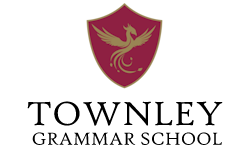A GCSE course in Modern Languages allows students to develop their ability to understand the spoken and written language and express themselves both orally and in writing. The topics studied include: Identity and culture; Local, national, international and global areas of interest; Current and future studies and employment.
Students’ skills are developed through a variety of activities, including giving presentations, group work, independent research, pair work, and the use of ICT. Students need to be prepared to develop their active and passive vocabularies and their knowledge, understanding and application of grammar.
Although students decide to continue with one or two modern languages at the end of Year 9.
In Year 9, student have two lessons per week and three lessons per week in Year 10 and Year 11.
Assessment Structure for French, German and Spanish
- Paper 1: Listening Exam – Understanding and responding to different types of spoken language (25%). Questions are answered in both English and the Target Language.
- Paper 2: Speaking Exam – Communicating and interacting effectively in speech for a variety of purposes (25%)
- Paper 3: Reading Exam – Understanding and responded to different types of written language (25%). Questions are answered in both English and the Target Language.
- Paper 4: Writing Exam – Communicating effectively in writing for a variety of purposes (25%)
It is Departmental policy to enter all pupils for the GCSE language examination. The Department follows the AQA syllabus for French, German and Spanish.
It is school policy to enable bi-lingual students to take the GCSE in their mother tongue. It is not always possible to cater for the speaking tests on the school site and in some cases a different Examination Board is used.




